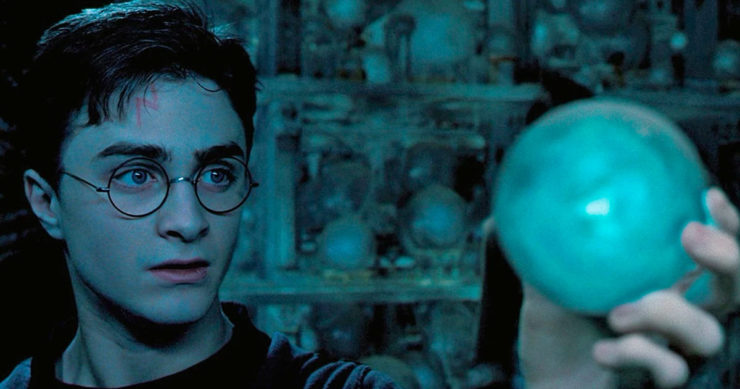I grew up on chosen one stories, and if you like science fiction and fantasy—which, duh, you’re here, aren’t you?—you probably did too. They are everywhere. I always loved them, and I still do, whether they use this trope straightforwardly or get playful with it. I love the interplay between destiny and choice, and the inherent loneliness of specialness; I love the fear of an important purpose, and the craving for it. But one of my favorite parts of every chosen one story is The Conversation. You know, the one where the character finds out they’re “chosen,” and has to decide whether to walk the path that’s been set for them.
You can find out a lot about the story you’re in by how they tackle this conversation. Here are some of the most memorable ones of my life.
The Animorphs and the Glowing Box
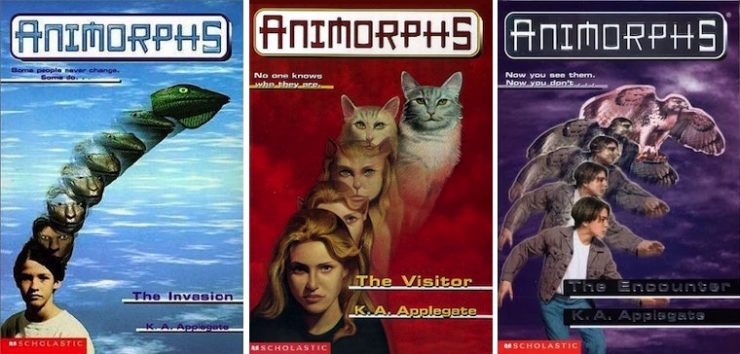
I devoured these books growing up, and they were one of the first exposures to science fiction I had. Even if you didn’t read them, you might remember their original covers—each one depicting a kid turning into an animal, and all the horrific steps in between.
The Animorphs “chosen one” conversation involves an alien telling our five heroes that Earth has been invaded by a race of slug creatures that crawl into your brain via your ear canal and take over your mind. The alien then offers them a choice: he can give them the ability to fight these slug creatures (Yeerks) by transforming into animals. Yes, the characters find that as weird as you might expect. But it’s a middle grade book, and the alien is in the middle of dying, so there’s not a lot of time to dwell on it. The alien tells each of them to touch one side of this glowing cube, which will transfer the abilities to them, and they do. The fate of the human race depends on it, after all.
What I like about this conversation is that it was entirely coincidental. The alien happened to land in this place where these five people just so happened to be. They don’t have any special skills—their unique abilities are a gift in a desperate moment. There was possibility here that doesn’t exist in every chosen one story—the potential for heroism in any random kid who happens upon a flying saucer with four of his friends, and has the heart for it.
The Matrix and the Oracle Fakeout
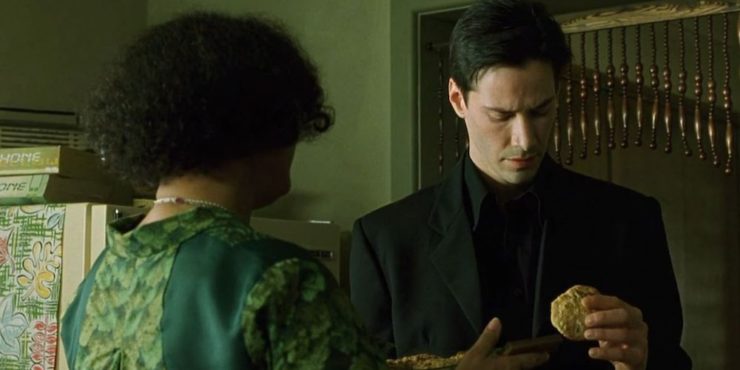
I saw The Matrix in sixth grade. I remember, in the conversation between Morpheus and Neo where Morpheus explains “The One”, getting that spark of excitement in my stomach: we were about to see Neo’s specialness on full display, his “set apart” status. And then, when Neo finally goes to see the Oracle, to confirm that he is indeed the hero of our tale…I can’t explain to you how deflated I felt.
ORACLE: But you already know what I’m going to tell you.
NEO: I’m not the One.
ORACLE: Sorry, kid.
At that point, I realized, I had no idea what was going to happen next. I had no road map in my mind for how this story could go. (Remember: I was eleven, I hadn’t been around long.) If you’ve seen the movie, you know the oracle tells Neo what he needs to hear in order to embrace his destiny, and he is actually the One, a fact he realizes largely because Trinity, certified hottie, confesses that she’s in love with him while their ship is coming apart around them and he’s still stuck in the Matrix, and it’s all very intense and dramatic and I still desperately want a trench coat.
But it all goes back to that conversation with the Oracle, that moment when fate and choice tangle together. That conversation introduces us to a simple idea: sometimes, in order to fulfill a destiny, you have to feel free to make your own choices. You have to believe that you are not special, that your life is not singularly important, in order to become someone who is.
Harry Potter and the Broken Prophecy
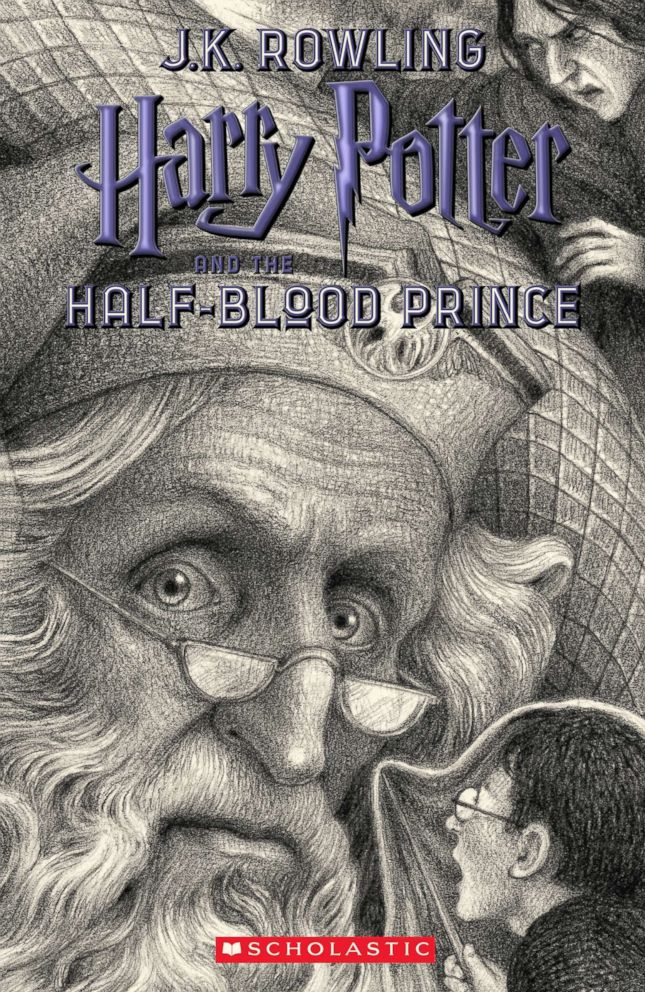
It took five books for us to find out Harry’s “chosen one” status via a prophecy contained in a glass orb, but that’s not even the “chosen one” conversation I want to talk about. That honor belongs to Book 6, The Half-Blood Prince.
Dumbledore has been, up to that point, taking Harry on a journey through other people’s memories, introducing the method by which Voldemort will, at last, be defeated—but this conversation is also about how Voldemort himself determined the prophecy would be fulfilled, creating the instrument of his own downfall (Harry) by trying to destroy it. The focus here is not on destiny, but on choice.
“He understood at last what Dumbledore had been trying to tell him. It was, he thought, the difference between being dragged into the arena to face a battle to the death and walking into the arena with your head held high.”
Harry already knows he’s the chosen one—he’s known that for a year at this point. The revelation here, then, is that choice exists. Harry’s destiny tells him only what he already knew, an inevitability from the moment Voldemort murdered his parents. It’s the feeling that matters here, more than the fact—the feeling of agency, restored, which is what our hero needs to complete his journey. Harry Potter presents the idea that choice informs destiny, and destiny informs choice. The two are locked together, often indistinguishable from each other.
Dune and the Gom Jabbar

Chosen One stuff is all over Dune by Frank Herbert, a book I read when I was probably too young to understand half of it, twelve or thirteen. But the most memorable of the assorted chosen one conversations in this book is the one at the very beginning: Paul is summoned to a test wherein a Bene Gesserit Reverend Mother puts his hand in a box that causes horrible pain, and then puts a needle called the Gom Jabbar to his throat. If he removes his hand from the box, he’ll die by the Gom Jabbar. If he can outthink his animal instincts and keep his hand where it is, he’ll live. Paul passes, obviously—but he also learns of his new potential. You see, there’s a prophecy. (Duh.) One man will be the Kwisatz Haderach, with special abilities beyond those of the women who have come before him. Paul’s mother, Jessica, chose to give birth to a son rather than a daughter in the hope that he might be that man of prophecy. He exists because she believed he could have an important destiny.
I have…a lot to say about the gender politics part of the Kwisatz Haderach, but this isn’t really the place for that. For now, let me just say that Dune is unique for the way that Paul both buys into prophecy and uses it to manipulate the people who believe in it. He sees an array of paths and steers himself and others accordingly. And this moment is just the first example of that—Paul himself is a result of his mother’s pride, her taking the reins of destiny and trying to yank them in a particular direction. This bold maneuvering of destiny is part of what makes Dune a special chosen one story—fate, here, is a powerful weapon you can halfway wield, rather than something to surrender to.
Community and the True Repairman
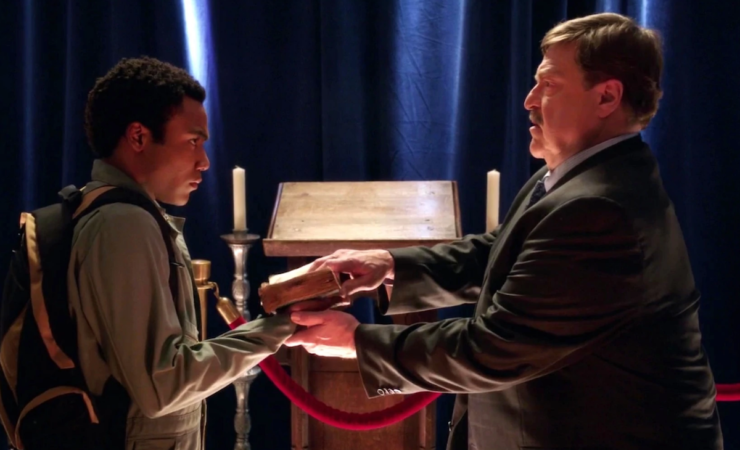
Community, uneven though it was, was singularly capable of taking an extremely low stakes situation (a study group at a community college) and creating high stakes, weird drama out of it. Never was this more apparent than with Troy in season 3, embracing his destiny as the Truest Repairman. Basically, Troy wants to go to regular college, but he has a special gift of…air conditioner repair. The Dean of the air conditioner repair school finally maneuvers Troy into his grasp, and then reveals to him his destiny: he is the Truest Repairman, who will fix “not only air conditioners, but the men who fix them.” Troy then faces off with the evil air conditioner repair guy in a thunderdome style air conditioner repairing arena known as The Sun Chamber, defeats him, saves his life, and tells them all to stop being an absurd cult and become a regular school instead. He can do that, he says, because he’s their Messiah.
I don’t think this subplot was received positively by all fans of the show, but it was received positively by me, Chosen One Enthusiast. Few times in my life have I laughed harder than when Troy hears this prophecy about the Truest Repairman and replies, “It’s a trade school! It’s a two-year degree in boxes that make rooms cold!” Community loves tropes, and it loves playing with them while simultaneously indulging in them, something I very much enjoyed about it—and later decided to try my own hand at.
My book, Chosen Ones, takes place over ten years after my main character Sloane hears about her destiny. But I couldn’t resist including the chosen one conversation, in the form of a declassified government document. In it, she asks what will happen if she says no, and she is the only one of five chosen ones to do so. Sloane is not eager to save the world, but she does it anyway, and ten years later, haunted by the trauma of that experience, she wonders if what set the five of them apart, really, is that their parents were willing to surrender them to destiny, and other chosen one candidates’ parents were not. Sloane is primarily concerned with the cruelty of shaping a child to save the world. She is living in its aftermath.
As with any trope, though, you can’t mess with it unless you have a good foundation in it—and these five stories, among others, paved the way.
Buy the Book
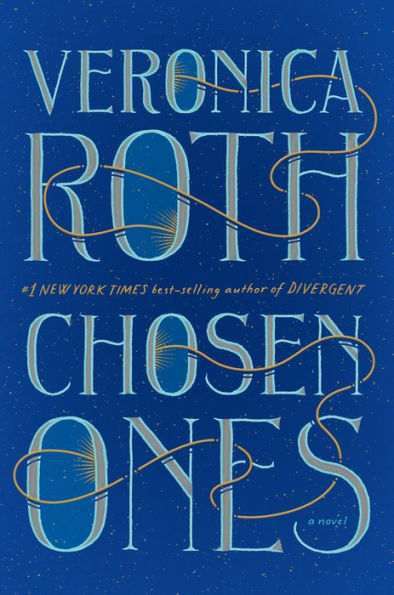

Chosen Ones
Veronica Roth is the #1 New York Times bestselling author of the Divergent series and Carve the Mark. She was born in a Chicago suburb, and studied creative writing at Northwestern University. She and her husband and dog currently live in Chicago. You can find Veronica on Instagram (@vrothbooks), Facebook, or at her website (veronicarothbooks.com). Chosen Ones is available from Houghton Mifflin Harcourt.










